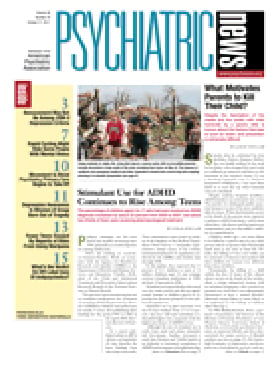A recently enacted Florida law prohibiting physicians and other health care practitioners from discussing gun ownership with their patients has been temporarily blocked by a federal judge on grounds that it violates physicians' free-speech rights. U.S. District Court Judge Marcia Cooke rejected the state's argument that failure to enforce the law threatens the constitutional right to own firearms.
"We certainly see the judge's decision as a victory for our members," said Debra Barnett, M.D., president of the Florida Psychiatric Society (FPS). "Though the law's final language incorporated our suggestion that questions about gun ownership be permitted when deemed relevant to a patient's medical care or safety, our members remained concerned about protecting the open communication at the heart of the physician-patient relationship."
Signed by Florida Gov. Rick Scott (R) on June 2, the Firearm Owners' Privacy Act enjoins physicians from inquiring about or recording information related to patients' gun ownership, unless there is direct relevance to the medical care or safety of a patient or to the safety of others. The law also forbids discrimination or harassment regarding gun ownership.
While an early draft of the legislation would have put physicians at risk of penalties of up to $5 million or five years in prison, staunch opposition from such groups as the FPS and the Florida Medical Association resulted in a less harshly worded "compromise bill" (Psychiatric News, May 20). Still, physician groups and gun-control advocates continued to voice concern over the interpretation and enforcement of a law that now threatens those physicians found in violation with the loss of their medical license and up to $10,000 in fines.
On June 24, several individual physicians and the Florida chapters of the American Academy of Pediatrics, American Academy of Family Physicians, and American College of Physicians filed a lawsuit in U.S. District Court for the Southern District of Florida seeking injunctive relief.
The plaintiffs argued that inquiry into the presence of firearms in patients' homes is part of a standard preventive-medicine line of questioning designed to assess potential health and safety risks to the patient and his or her family.
The defense countered that the Second Amendment right to gun ownership is "the primary constitutional right at issue in this litigation," contending that the new law was necessitated by a 2010 incident in Ocala, Fla., in which a pediatrician refused continued treatment of a minor patient after the child's mother declined to disclose information about firearms in the home. But Cooke rejected the defense's argument saying it lacked sufficient legal grounds.
"The legislative debates on this bill reveal that the legislature relied heavily on anecdotal information about physicians asking patients about firearm ownership, physicians misrepresenting that Medicaid would not pay out claims if the patient did not answer questions regarding firearms, or physicians refusing to conduct examinations on patients who refused to answer questions about firearm ownership," wrote Cooke in her order granting the plaintiffs' motion for preliminary injunction. "It does not appear that the Florida legislature relied on any studies, research, or statistics on physicians' practices or patients' experiences on this issue [before it passed this law]."
The governor's press secretary told the political news blog Talking Points Memo that the state plans to appeal the injunction blocking enforcement of the law.

